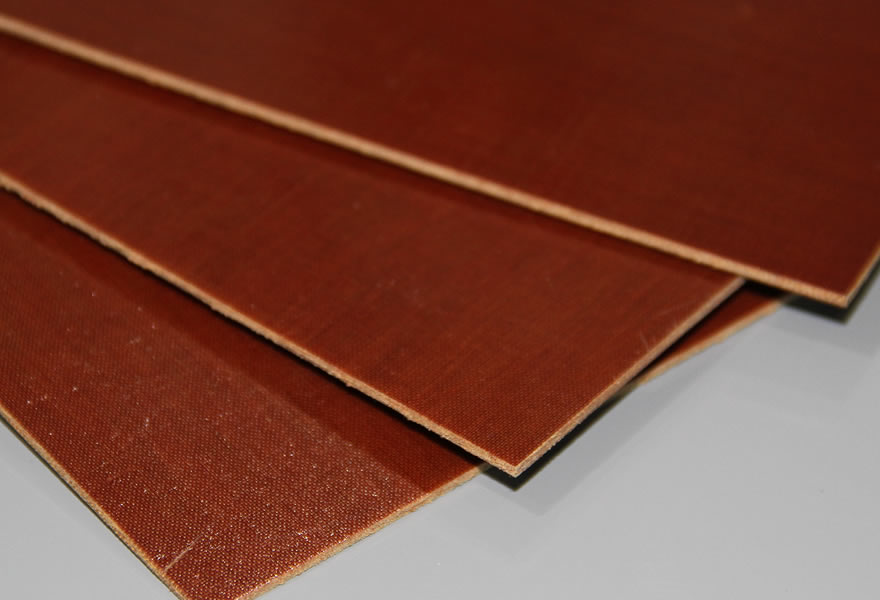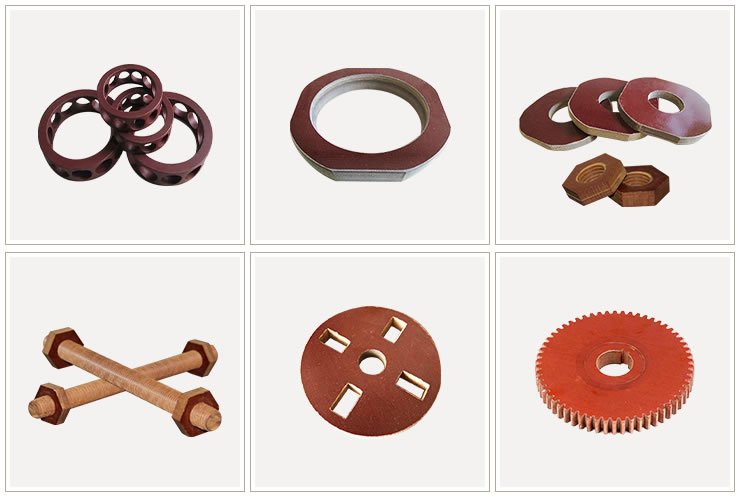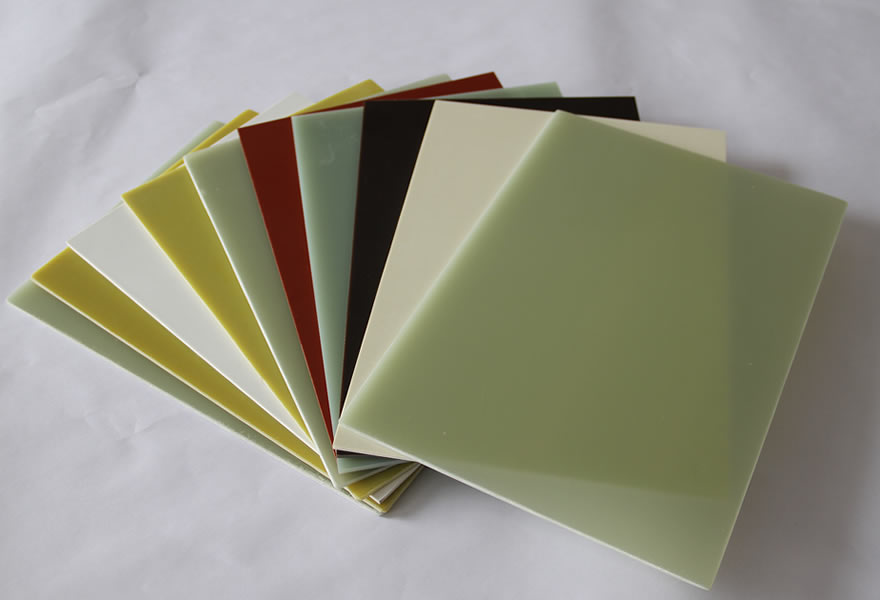Phenolic cotton cloth laminated sheet (also known as Bakelite cotton cloth board) is a classic electrical insulation ...
Phenolic cotton cloth laminated sheet (also known as Bakelite cotton cloth board) is a classic electrical insulation material with stable temperature and voltage resistance, suitable for various motors, electrical devices, and mechanical parts. Detailed performance is as follows:

Heat Deflection Temperature (HDT): typically 130℃–150℃.
Continuous Operating Temperature: generally around 120℃, short-term can withstand 150℃.
High Temperature Class: considered Class B insulation material (according to IEC standards), suitable for medium-high temperature electrical environments.
Characteristics: Good thermal stability, resistant to delamination or cracking at high temperatures; commonly used for motor slot wedges, insulating supports, etc.
Dielectric Strength: approximately 15–25 kV/mm (depends on thickness and manufacturing process).
Volume Resistivity: about 10¹²–10¹³ Ω·cm, offering excellent insulation.
Impulse Voltage Resistance: can withstand several kilovolts of pulse voltage, suitable for motors, transformers, and switches in high-voltage environments.
Characteristics: The insulation performance is stable; it does not break down or leak electricity during long-term operation.
| Property | Value / Range | Notes |
|---|---|---|
| Heat Deflection Temperature | 130℃–150℃ | Suitable for medium-high temperature insulation applications |
| Continuous Operating Temperature | 120℃ | Meets Class B insulation standard |
| Dielectric Strength | 15–25 kV/mm | Reliable in high-voltage environments |
| Volume Resistivity | 10¹²–10¹³ Ω·cm | Excellent long-term insulation performance |
| Impulse Voltage Resistance | Several kV | Can withstand short-term high-voltage spikes |
Motor slot wedges and end-cap insulation
Transformer insulation sheets
Switchgear or high-voltage equipment insulating supports
Mechanical parts requiring electrical insulation

| Material | Heat Deflection Temperature (HDT) | Continuous Operating Temperature | Dielectric Strength | Volume Resistivity | Insulation Class | Features / Typical Applications |
|---|---|---|---|---|---|---|
| Phenolic Cotton Cloth Board | 130℃–150℃ | 120℃ | 15–25 kV/mm | 10¹²–10¹³ Ω·cm | Class B | Motor slot wedges, transformer insulation sheets, switchgear insulating supports |
| FR‑4 Epoxy Glass Fabric Laminate | 130℃–170℃ | 130℃ | 20–30 kV/mm | 10¹²–10¹³ Ω·cm | Class B/C | PCB substrates, high-voltage insulation sheets, electronic component supports |
| Phenolic Paper Board | 105℃–130℃ | 105℃ | 10–20 kV/mm | 10¹¹–10¹² Ω·cm | Class A/B | Motor end caps, low-voltage switch insulation, general mechanical insulation |

Temperature resistance: FR‑4 > Phenolic Cotton Cloth Board > Phenolic Paper Board
Voltage resistance: FR‑4 and Phenolic Cotton Cloth Board are similar; Phenolic Paper Board is slightly lower
Application differences:
FR‑4: high-temperature, high-voltage electronic environments
Phenolic Cotton Cloth Board: motors and electrical equipment mechanical insulation parts
Phenolic Paper Board: low-voltage or general mechanical insulation
If you are interested in our products,, please send us a message and we will contact you as soon as we receive it. Email: info@ztaero.com whatsApp: +8616650273778